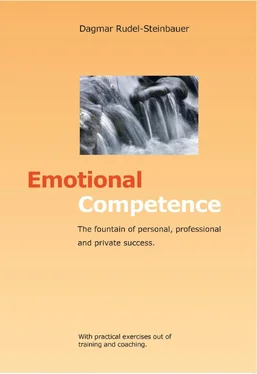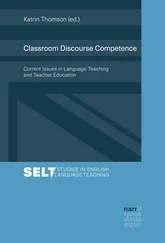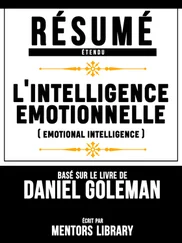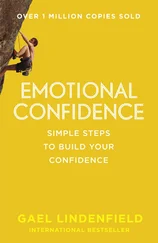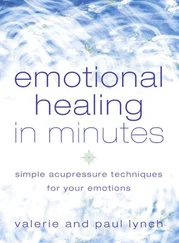Thus, it can be that the word “work” is seen as something pleasant or even fulfilling, as very positive; maybe this person has finally found work after having been unemployed for a long time, after a long sick leave or this person has found their dream job. For other people, the same word can be connected to a burdensome feeling resulting from a bad work atmosphere, an underpaid or demanding job. The same word is assessed differently because of the different feelings brought on through this word. An emotional marker is developed through the rational part of a message, a word or situation influenced and manifested through a feeling.
Emotional Markers
“Our life is what our thoughts make of it.”
Marcus Aurelius, Roman king and philosopher (121-180 A.D.)
Our emotional markers develop individually during the course of our life according to our personal perceptions, experience and individual feelings. These emotional markers stay with us our whole life and give us orientation daily. Thus, we do not need to examine every situation anew since we have already had this experience and have memorized the related feelings.
It is important to accept that this is our personal and thus subjective assessment, which is also very individual. It may be that a friend feels the same as we do in some situations. However, just as often, we will find that other people feel quite differently. To accept and to allow this is an important part to promote one’s own emotional competence.
On the contrary, the different feelings of our counterpart should give us reason to examine our emotions and see if we are reacting in a suitable way to the things, situations or words involved.
In the same manner, we should always examine our cognitive knowledge to complete it or to exchange it for new knowledge. A good example for this is an example from our technical daily life: you probably are no longer working on one of the first computers. You probably have a laptop with the newest programs, maybe even an iPad, an iPhone you write e-mail instead of letters and google information instead of ordering a pamphlet with new information. You did not hesitate to throw out old technology to replace it with the new.
When was the last time that you thought about your memories and renewed your emotional capacity?
In a normal lifestyle, examining our feelings happens more often without even thinking about it. (Women will maybe understand this example more than men will. I just ask of the men to think about this example).
Women friends (maybe even men friends) often tell each other their emotional worries or what has made us angry and in this way, we are asking their opinion about the situation. When this is a good friend, this person will understand your feelings, maybe they will even agree with you. It may even be possible, that this person will tell you that you are right and will support you and reinforce your emotion.
When this is an even better friend, this person will also tell you if they think that you are wrong in your assessment of the situation. She referrers to her personal emotional marker, which helps you, examine your own. As the same is true for our emotional being as for our rational being. We need to examine our emotions as accepted or not acceptable, as appropriate or inappropriate. Just as false information can lead us to bad decisions, false emotions can also lead us astray.
Unfortunately, this process is often underestimated even though it could take place daily in an autodidact learning process. On the contrary, some friendships end because our counterpart does not feel or think the same way and conflicts start because we do not feel accepted.
Food for Thought and Exercise
How do we react when someone doesn´t think or feel the same as we do?
Which emotions occur in this situation?
Which emotional marker have you registered? (Which situation do you connect with this emotion?)
Do you recognize when your emotions are not appropriate? Can you correct them?
Competence
“Humanity and social competence cannot be studied.
Justus Vogt (*1958), thinking living and living thinker
The word “competence” is used in many different ways, competence in languages, in management, in leadership, in learning and many more. The list of knowledge or competences required of the working population is never ending.
The core of the work competence is in the ability and the skill to do something; to be able to do something, to perform, to apply oneself to doing it. Competence (Lat. Competere, competentia: to meet (as in meeting a need)) indicates the ability (psychological) or the responsibility (juristic) of a person to perform a task independently.
In a psychological sense, competence can be understood as a disposition of self-management or organization. In an educational sense, competence is tested ability through scholarly measures. 8
Andre Stern 9describes competence as something much more important than knowledge, as only through competence one can come to success- and success makes you happy. Andre Stern – a young man that never went to school, (is today musician, composer, luthier, journalist and successful author) couldn´t really read until he was eleven years old and thinks that it doesn´t matter how old you are to learn something. It is only important to be excited about it, and then you will persevere and so develop this competence.
Everyone can learn competences at any time, no matter of age, educational status, gender or background by means of self-teaching or further education. Competences can be developed alone through experiences and the knowledge collected through these means. Intelligence can be of help but it is not required. This fact should give us courage.
A person that has enough competence to be able to do certain things is thus regarded as a specialist. This is why in this book we are speaking of emotional competence and not of emotional intelligence, as:
Intelligence comes from the Latin “intelleger, intelligentia” which according to the Collins Dictionary means to “is the ability to think, reason, and understand instead of doing things automatically or by instinct 10”. Here we are talking about perceiving, realizing and understanding. However – what is the use of perceiving, realizing and understanding, to have knowledge about these things if one cannot use this knowledge successfully.
So emotional competence is perceived in the direct application and not alone in its knowledge.
I want to remind you that only reading this book will not enough to further your emotional competence. You must be ready to use this knowledge successfully in your professional and private life. (You will find more information in the chapter „Nurturing and Developing Emotional Competence.”)
Empathy – the most important Requirement
“But reason always cuts a poor figure beside sentiment; the one being essentially restricted, like everything that is positive, while the other is infinite.”
Honoré de Balzac, French author and novelist (1799-1850)
Maybe you have been in the following situation, you see persons hurt themselves, e.g. they get their finger caught in a car door. Just looking at the situation, you feel the pain, wince and suffer with the person involved.
Jerome Littlefield, played by the actor Jerry Lewis has the same experience in the movie: “The Disorderly Orderly”. In this movie, Lewis plays a caregiver in a mental hospital, who wants to be become as well-known as his father: however, this caregiver has developed the psychological peculiarity of feeling the same pain as his patients first hand.
What is amazing is that this film was made in 1964 and 30 years later, this peculiarity has obtained a scientific background.
Giacomo Rizzolatti discovered this form of sensitivity through the discovery of mirroring neurons in the cerebral cortex in 1995. 11Mirroring neurons have amazing mechanisms in which different areas of the brain always react the same, no matter if one is carrying out an action or just observing someone else. This is why we involuntarily wince when a person we know well recounts a painful medical intervention. 12The closer this person is to us, the more we are able to perceive and so mirror their pain. Thus, explaining why feelings are contagious and we can understand what others are going through. Therefore, mirroring neurons contribute to sensitivity so that we can react with empathy. 13
Читать дальше
